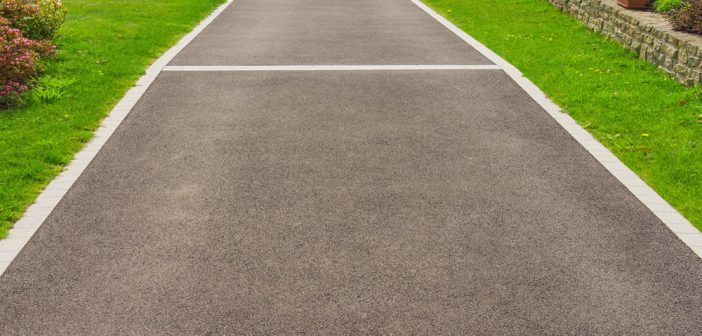The summer months are the best time of year for a repaving project. If your driveway is in poor condition, it will only get worse over time as weathering takes a toll on its surface. Here are some reasons to start a project to repave during the summer.
Why It’s Best Done in the Summer
A hot mix asphalt will arrive at your home inside a heated truck where it is maintained in a liquid form to ensure that the aggregates inside staying evenly mixed and that it is easy to pour. When the weather is warm, this asphalt can be poured onto your driveway, spread out and easily leveled off it is liquid form. It will then cool, harden and create a tough, long-lasting surface for your driveway.
However, when the weather is cooler or cold, the temperature of this mixture will start rapidly dropping the moment it leaves the truck and hits the ground. This means it will start thickening right away, which results in an uneven pour across your driveway. Even worse than this, if the weather is cold enough it can begin to harden up before the workers even finish the job of spreading it out and leveling it. In addition, if the ground around your home is still frozen, the aggregates embedded in the asphalt can start to loosen and separate themselves from the binder.
All of these issues can result in a driveway that is unattractive and appearance and extremely un-even across its surface. They can also be damage to the underlying structure of the driveway asphalt, which can lead to water intrusion and result in the degrading and breakdown of the asphalt. This in turn means you will have to do the whole thing over again when the weather gets better. These other reasons why it is much better to repave your driveway during the summer when the temperatures are high and the asphalt can flow freely.
What Temperatures Are Required?
You may be wondering just what temperatures are best when it comes to repaving a driveway. When you’re putting in a new driveway, you need to make sure that the base layer is only laid out when the temperature is at least 40°F. For the upper layers, the temperature needs to be no less than 50°F. Keep in mind though that these temperatures represent the absolute minimum. It’s much better if the temperature is at 70°F or better, since this will provide the maximum amount of time for working with the liquid asphalt before it starts to harden. This will yield the best possible result. This means that the summer is certainly the ideal time for paving, repaving or repairing a driveway.
Concerns About Precipitation
Another thing you have to take into account is just how much precipitation you’re going to get while repaving your driveway. While it is possible to pave your driveway during a blistering rain or a light drizzle, an absolute downpour can result in the asphalt cooling far too quickly. This can in turn result in damage when you’re putting down the base layers. This is another reason why the drier summer time might be the best time to schedule this particular project.
Emergency Repair Jobs
If you have an emergency because your driveway has developed dangerous potholes, serious cracks or other significant signs of structural problems, carry out the repair as quickly as possible. Even if it is winter, you will want to nip this problem in the bud as quickly as possible.
Cold Mix Asphalt
As the name obviously suggests, a cold mix asphalt does not have to be maintained at a high temperature. It can be mixed up and remain pliable in freezing temperatures. Keep in mind though that this is only a temporary solution to your problem. While this patch will probably make it through the winter, you will definitely want to replace it with a full hot mix repair when the temperatures finally go up.
Warm, dry weather offers the optimal conditions for either paving or repaving a driveway. If the project is done correctly and at the right time of year, a driveway can last 2 decades or more, meaning it is a major long-term investment.









